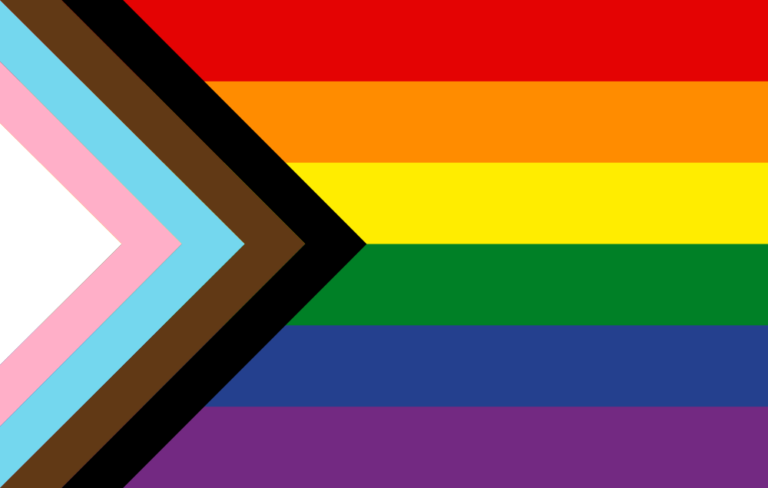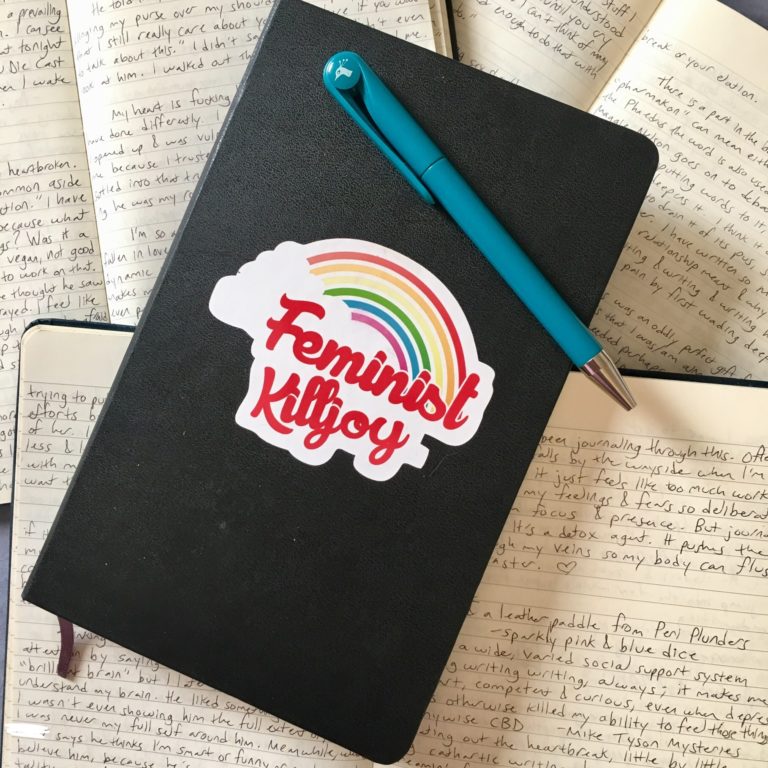
This post was written as part of Julia Serano’s suggested action today for LGBTQ+ people and their allies.
It’s a terrifying time to be queer or trans – but especially to be trans.
In the months leading up to this latest U.S. election, unhinged right-wingers called queer people groomers and pedophiles, cruelly politicized the horrific deaths of trans people, and spent $215 million on anti-trans attack ads. (God, can you imagine if that money had gone to something actually useful instead, like housing or famine relief?)
Republicans are unsettled by us, not just because so few of us vote for them (I mean, why the fuck would we?!) but because of what we represent: that sexuality and gender are neither fixed nor binaristic, and that this means gender- and sex-based power hierarchies are, and have always been, artificial and meaningless.
I also suspect there’s a tinge of subconscious jealousy coloring the behavior of these bigots – not because I think they’re necessarily queer or trans themselves, but because I think many of them feel trapped in the scripted tedium of conservative cis-hetero life, and are furious at us for daring to build our own lives and be our own selves, instead of grabbing ready-mades off the shelf.
But while Republicans spewing vile hatred is to be expected, what’s more surprising is when members of the LGBTQ+ community throw each other under the bus. There have always been people who do this, but we’re seeing more and more of it since the election: many Democrats, some of whom are queer, have theorized that trans rights were a sticking point that may have lost us the election, or have essentially argued that we need to “pick our battles” and that basic civil rights for trans people are not a battle worth picking.
This, obviously, is despicable. It’s despicable not only because abandoning an already-disadvantaged community is cruel, and not only because every human being deserves human rights, but also because queer struggles and trans struggles go hand-in-hand. Right-wing zealots hate queer people for many of the same reasons they hate trans people, and vice-versa.
I mean, hell, plenty of them don’t even know the difference between being queer and being trans! They hold a deep-seated hatred toward sexual and gender transgressors (…except for cis male rapists, apparently, to whom they give jobs instead), and they paint that hatred across all of us with a very broad brush. We don’t all get treated the same, and certainly some of us are more privileged than others (myself included, as a white queer cis lady who can ‘pass’ as straight in some situations) – but the hatred levelled against all of us, I believe, originates in more-or-less the same place.
This is why our social and political goals have long been aligned, this is why we have often grouped ourselves under the LGBTQ+ umbrella, and this is why it’s absurd to me when cis queers don’t care about trans issues. As the pastor Martin Niemöller reminds us in his famous 1946 poem “First they came…,” your obedience and silence will not save you from the wrath of the fascists. They will come for you, too. The Leopards Eating People’s Faces party will eat a queer face just as readily, and just as happily, as they’ll eat a trans one.
So, when I say that LGBTQ+ people are not going back, I mean that we refuse to give up our hard-won rights and freedoms – and I also mean that we should never go back to being a splintered group with disparate goals and dissenting strategies. We need to band together now more than we ever have before. We need to have each other’s backs. We need to fight this madness and take care of each other and ourselves at the same time. It’s the only fucking way forward.
If you’re on board with that goal, here are some concrete things you can do:
• If you are in the U.S., please contact your senators, your state legislators, and even your local politicians, to state unequivocally that you refuse to tolerate a backslide in rights and protections for LGBTQ+ people, and that you will take your vote elsewhere next election if they cannot commit to action on this. Julia Serano has a script you can borrow if you’re not sure what to say.
• If you have some cash to spare, consider donating to an organization that fights for queer and trans rights, such as the American Civil Liberties Union (ACLU) or Advocates for Trans Equality (A4TE).
• You also might consider donating to organizations that help individual trans people directly, like GLITS, the Trans Lifeline, or a mutual aid fund in your community.
 Here it is: my last 12 Days of Girly Juice post of 2020!
Here it is: my last 12 Days of Girly Juice post of 2020!